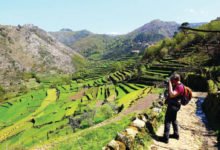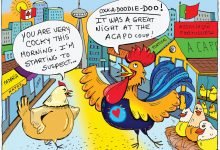Portuguese? Filipino? Mixed? A Person

Throughout my childhood, nothing irritated me more than the following reaction, “Whaaat? You are Filipino and Portuguese? Oh my gosh, you do not look *insert either*! What do you relate to more?” In response, I would spout whatever answer I felt would change the topic the fastest. But do not misunderstand! On the surface, it was a lighthearted question, which was not intended to offend me. Yet, every single time, I felt like my racial identity was being called into question. What frustrated me most was that… I did not know what to say, resulting in a deep personal inner conflict. Now, as an interracial young adult, I realize the profound impact these questions played into who I have become and who I want to be.
In recent times, I have had the opportunity to reflect upon a matter of issues, which has been quite insightful. For a majority of my life, I have struggled with an identity crisis, with regards to being Filipino. Growing up, my dad’s family were quite westernized, which is to say that they did not adhere in the traditional customs and traditions. My memories are not filled with an abundance of “famjams”, full of laughter and excitement with my cousins. I was not taught an ounce of Tagalog, rather, I was devoid of the Filipino culture. As I got older, things did not change, as my brother and I were essentially ostracized after my parents got divorced. As a result, I grew up in a Portuguese household raised by mãe and avós. I was taught to keep the house clean, remade my bed 10 times anytime I left it undone, and indulged in lots of frango no churrasco with batatas fritas, pastéis de nata and my avô favourite, bacalhau! In a sense, I felt fulfilled and culturally in-tune with my Portuguese side but lacked the understanding of what it meant “to be Filipino”.
When I entered high school, I only had one close friend of mine, who happened to be Filipino. He and I had a lot of common interests, so we spent a lot of time together. Soon, we became part of a friend group, who were mostly Asian. For the first time, I truly felt like I belonged somewhere, but most importantly, I felt like I was connecting to my Filipino side! Coincidence or not, the desire to be recognized… to belong to something bigger, this insecurity subconsciously seeped its way into many of my choices. I thought, “If my family can’t teach me, then I’ll learn my culture on my own.” With friends, I preferred to interact with Asians, and adopted hobbies that they were interested in. In a sense, I developed a security blanket as a coping method. Eventually, this drove my decision to enter into youth camp.
Personally, I have never been an avid believer in religion, with regards to its customs and traditions. All of my life, I’ve questioned the existence of God, the notion of faith and the choice to abide in others’ understandings of the purpose of life. Ironically, in Grade 11, I chose to join a youth group hoping to develop a relationship with God. At the time, I felt very lost and thought it might nudge me in the right direction. So, there I was, at a religious Catholic youth camp, without a grounded belief in anything… and everyone was Filipino. Suddenly, it was a chance for me to learn both! However, I began to realize that there was a major difference between them and I: they grew up in the culture. Often times, I felt embarrassed, whether it was from a lack of knowing food or certain social norms. Their reactions varied from, “Whaat? You do not know *insert Filipino food*? Make sure to bless the titos and titas when you first see them!” In conversations, I was jokingly called ‘whitewashed’, a slang term for a westernized individual out of touch with their cultural and ethnic background. This was the breaking point, which catapulted me forward into self-understanding.
The term ‘whitewashing’, regardless of intention, is a term that causes an unnecessary divide amongst those ‘cultured’ and ‘uncultured’. Initially, when I was called that, I laughed it off and reinforced the barrier. In a subtle manner, it is a way of saying, “You are different from us, regardless of your attempts to feel accepted.” Some may say that it is simply meant to be a joke. But I, for one, as a biracial person view it as a derogatory insult. Since I was a kid, I desired to be accepted by the culture, to wholly and fully ‘feel Filipino’. So, how is it that such a term can be used as a joke? How can we feel acknowledged and wholly accept our racial identity, while being undermined at the same time? It is demoralizing, and frankly makes the process mentally exhausting to suggest that I chose to be out of touch with my culture. The feeling of being gatekept… of having to prove that we are ‘biracial’, it is a burden many of us carry. However, it does not need to be carried by us alone. We must support one another, and most importantly, choose to place self-love over the yearning for acceptance.
Through extensive self-reflection, I became cognizant of the toxic mindset I developed. Racial identity, in itself, is a social construct, which we as a society insists that exists. It is not an objective fact, something that I can firmly say is present within me. However, I fell into the trap of believing that it is absolutely necessary to be acknowledged. In reality, I viewed the ‘Filipino’ culture, as a green-is-greener way of looking at my upbringing. Which is to say, I undermined the life I have. I, as a biracial adult, have a beautiful family, and I am half-Filipino and half-Portuguese! I begin on the journey anew, for the sake of bettering myself, my family, and friends.
“Everybody people, everybody bleed, everybody need something
Everybody love, everybody know, how it go” – Logic
Kristian Dias Mendoza








Redes Sociais - Comentários